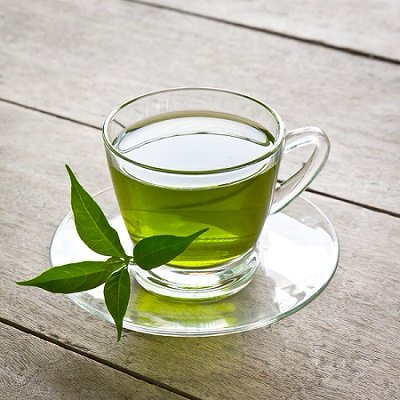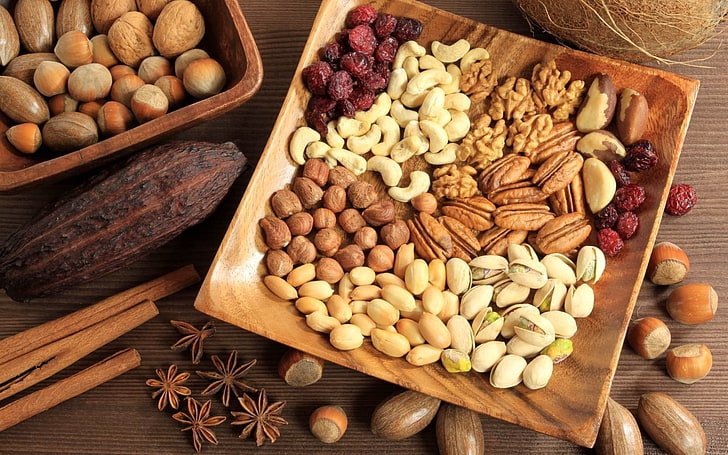Spices have long been treasured for their flavor-enhancing properties, but their health benefits go far beyond taste. These small but mighty ingredients pack a powerful nutritional punch, offering numerous benefits for the body and mind. From reducing inflammation to improving digestion and fighting chronic diseases, incorporating spices into your diet can significantly boost your overall health. This article will explore the most beneficial spices for health, their unique properties, and how you can incorporate them into your daily meals for a healthier lifestyle.
Why Spices are Essential for Health
Spices are derived from the seeds, bark, roots, fruits, or flowers of various plants. Their rich array of vitamins, minerals, antioxidants, and anti-inflammatory compounds make them natural remedies for a wide range of health issues. Many spices contain antioxidants, polyphenols, and anti-inflammatory agents that help protect the body from oxidative stress and reduce the risk of chronic diseases like heart disease, cancer, and diabetes.
Top Spices and Their Health Benefits
1. Turmeric: The Golden Healer
Turmeric is one of the most well-researched spices and is known for its potent anti-inflammatory and antioxidant properties, thanks to its active compound, curcumin. This golden spice has been used in traditional medicine for centuries to treat various conditions such as arthritis, digestive problems, and infections.
• Anti-inflammatory: Curcumin is a powerful anti-inflammatory agent that helps reduce inflammation in the body, which is a root cause of many chronic diseases.
• Brain health: Studies suggest that turmeric may improve brain function and reduce the risk of neurodegenerative diseases like Alzheimer’s.
• Joint pain relief: Turmeric is commonly used to relieve pain associated with arthritis and other joint conditions.
2. Cinnamon: A Sweet Health Booster
Cinnamon is not only a delicious spice that enhances the flavor of both sweet and savory dishes but also a powerful antioxidant. It contains cinnamaldehyde, which is responsible for most of its health benefits.
• Blood sugar control: Cinnamon has been shown to lower blood sugar levels by improving insulin sensitivity, making it particularly beneficial for people with type 2 diabetes.
• Heart health: This spice helps reduce the risk of heart disease by lowering cholesterol levels, triglycerides, and blood pressure.
• Antioxidant power: Cinnamon is packed with antioxidants that protect the body from oxidative damage and reduce inflammation.
3. Ginger: A Natural Remedy for Digestive Health
Ginger is well-known for its ability to alleviate nausea and improve digestive health. Its active compounds, including gingerol, have powerful anti-inflammatory and antioxidant effects that promote overall wellness.
• Digestive aid: Ginger is effective in relieving indigestion, bloating, and nausea, particularly in pregnant women or those undergoing chemotherapy.
• Pain relief: It has been used traditionally to reduce muscle pain and soreness after exercise, as well as pain associated with osteoarthritis.
• Anti-inflammatory: Ginger’s anti-inflammatory properties help reduce inflammation in the body, which can help alleviate symptoms of conditions like arthritis.
4. Garlic: The Heart Protector
Garlic has been used for centuries in traditional medicine to boost the immune system and improve cardiovascular health. It contains allicin, a sulfur compound that gives garlic its distinctive smell and numerous health benefits.
• Heart health: Garlic is known to reduce blood pressure, cholesterol levels, and the risk of heart disease by improving blood flow and reducing plaque buildup in the arteries.
• Immune boost: Consuming garlic regularly can help strengthen the immune system and reduce the severity and duration of colds and other infections.
• Anti-cancer properties: Some studies suggest that garlic may help reduce the risk of certain cancers, including stomach and colon cancer.
5. Cayenne Pepper: A Metabolism Booster
Cayenne pepper is a hot spice that contains capsaicin, a compound known for its metabolism-boosting and pain-relieving properties.
• Weight loss aid: Capsaicin has been shown to increase metabolism and promote fat burning, making cayenne pepper a popular spice for weight management.
• Pain relief: Topical creams containing capsaicin are often used to reduce pain caused by arthritis, nerve damage, and muscle soreness.
• Heart health: Cayenne pepper helps improve circulation and reduce the risk of blood clots, which can protect against heart attacks and strokes.
6. Black Pepper: Enhancing Nutrient Absorption
Black pepper, often referred to as the “king of spices,” contains piperine, a compound that not only gives it its sharp taste but also enhances the absorption of nutrients in the body.
• Improved digestion: Black pepper stimulates the production of digestive enzymes, improving digestion and nutrient absorption.
• Nutrient absorption: Piperine increases the bioavailability of certain nutrients, particularly curcumin, making it more effective when combined with turmeric.
• Anti-inflammatory properties: Black pepper’s antioxidant and anti-inflammatory effects help reduce inflammation and protect the body from oxidative stress.
7. Cardamom: The Digestive Soother
Cardamom is a fragrant spice commonly used in Indian and Middle Eastern cuisine. It contains cineole and other compounds that offer a range of health benefits.
• Digestive health: Cardamom is traditionally used to relieve indigestion, bloating, and heartburn. It also helps reduce nausea and promote healthy digestion.
• Antimicrobial properties: Cardamom has natural antimicrobial effects that may help protect against oral infections and improve dental health.
• Respiratory health: This spice can help alleviate symptoms of respiratory conditions such as asthma and bronchitis by improving airflow to the lungs.
8. Cloves: Nature’s Antioxidant Powerhouse
Cloves are among the richest sources of antioxidants, thanks to their high content of eugenol. This compound has potent anti-inflammatory and analgesic properties.
• Antioxidant protection: Cloves are packed with antioxidants that protect the body from oxidative stress and reduce the risk of chronic diseases.
• Pain relief: Cloves are often used as a natural remedy for toothaches and gum pain due to their analgesic properties.
• Antibacterial effects: Cloves have natural antibacterial properties that help fight infections and promote oral health.
9. Saffron: The Mood-Enhancing Spice
Saffron is known as the most expensive spice in the world due to the labor-intensive process of harvesting it. However, its health benefits are just as impressive as its price. Saffron contains crocin and safranal, compounds that are known to improve mood and cognitive function.
• Mood enhancer: Saffron has been shown to help reduce symptoms of depression and anxiety, making it a natural remedy for improving mental health.
• Antioxidant properties: The antioxidants in saffron help protect cells from oxidative damage and reduce inflammation.
• Eye health: Saffron has been linked to improved vision and a reduced risk of age-related macular degeneration.
Incorporating Spices into Your Daily Diet
Adding spices to your meals is an easy and delicious way to boost your health. Here are a few tips for incorporating these powerful spices into your daily diet:
• Turmeric: Add turmeric to soups, stews, or rice dishes. Pair it with black pepper to enhance its absorption.
• Cinnamon: Sprinkle cinnamon on oatmeal, yogurt, or fruit for a sweet and healthy kick.
• Ginger: Use fresh ginger in teas, stir-fries, or smoothies to enjoy its digestive benefits.
• Garlic: Incorporate fresh garlic into salad dressings, sauces, or roasted vegetables for a heart-healthy flavor boost.
• Cayenne Pepper: Spice up your soups, curries, or scrambled eggs with a pinch of cayenne pepper to kickstart your metabolism.
• Black Pepper: Add freshly ground black pepper to almost any savory dish for enhanced flavor and nutrient absorption.
• Cardamom: Use cardamom in both sweet and savory dishes, such as curries, rice pudding, or baked goods.
• Cloves: Add ground cloves to spice blends for meats or use whole cloves in soups and stews for added flavor.
• Saffron: Use saffron in rice dishes, teas, or baked goods to enjoy its unique flavor and mood-enhancing properties.
Conclusion: Spices for a Healthier Life
Incorporating a variety of spices into your diet not only enhances the flavor of your meals but also provides a range of health benefits. From fighting inflammation and boosting metabolism to improving heart health and enhancing mood, these natural ingredients offer powerful support for overall wellness. So, spice up your meals with nature’s finest ingredients and enjoy the many health benefits they provide.
References
1. National Center for Biotechnology Information (NCBI) – Health Benefits of Spices
2. Harvard T.H. Chan School of Public Health – The Nutritional Power of Spices
3. Mayo Clinic – Spices and Their Health Benefits





